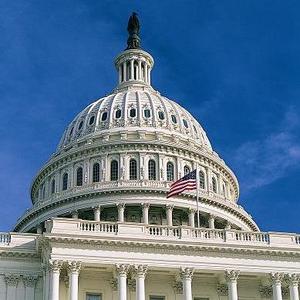Senators introduce bill to reinstate biodiesel tax incentive

February 13, 2014
BY The National Biodiesel Board
The National Biodiesel Board called on Congress to move swiftly on tax legislation after Sens. Maria Cantwell, D-Wash., and Charles Grassley, R-Iowa, introduced a bill to extend the expired biodiesel tax incentive for three years.
“On behalf of biodiesel producers across the country, we want to thank Sens. Cantwell and Grassley for their leadership on this issue,” said NBB Vice President of Federal Affairs Anne Steckel. “The biodiesel tax incentive has expired three times over the past five years, and each time it has severely disrupted production. By comparison, we know that at least $4 billion in incentives encouraging domestic petroleum production are built into the tax code. We need that same kind of stability for younger, cleaner industries like biodiesel and renewable diesel to compete.”
Advertisement
“This incentive clearly stimulates production and creates jobs at biodiesel plants across the country, and we urge the leadership of both parties to quickly take up this bill to ensure that we can continue the momentum that the biodiesel industry built last year with record production of almost 1.8 billion gallons,” Steckel added.
The $1-per-gallon incentive covers biodiesel, renewable diesel—a similar diesel alternative made with a different technology—and renewable aviation fuel. First implemented in 2005, it expired on Dec. 31, 2013. It also was allowed to lapse in 2012 and 2010.
Advertisement
The bill introduced Wednesday, S. 2021, would extend the tax incentive until 2017, providing the tax certainty the industry needs to gain access to capital and plan for production expansions and additional hiring.
Biodiesel—made from a diverse mix of resources such as recycled cooking oil, soybean oil and animal fats—is the first U.S. EPA-designated advanced biofuel to reach commercial-scale production nationwide. Produced in nearly every state in the country, the industry supported more than 62,000 jobs last year. In addition to the pending expiration of the tax incentive, the industry also is fighting a weak renewable fuel standard (RFS) proposal from the EPA, which recently proposed limiting biodiesel volumes under the RFS to 1.28 billion gallons for the next two years, a significant cut from last year’s production of 1.8 billion gallons.
Related Stories
A group of 28 House members on May 16 sent a letter to President Donald Trump urging his administration to adopt timely, robust Renewable Fuel Standard renewable volume obligations (RVOs) for 2026 and beyond.
A bill to formally adopt a revenue certainty mechanism to support the production of SAF was introduced in the U.K. Parliament on May 14. The proposed scheme is in the form of a guaranteed strike price.
Delta Air Lines on May 7 announced its strong support for new bipartisan, bicameral legislation that will accelerate the growth of sustainable aviation fuel (SAF) in Michigan. The bill aims to create a SAF tax credit of up to $2 per gallon.
The U.S. EPA on May 14 delivered two RFS rulemakings to the White House OMB, beginning the interagency review process. One rule focuses on RFS RVOs and the other focuses on a partial waiver of the 2024 cellulosic RVO.
U.S. EPA Administrator Lee Zeldin on May 15 told members of the House Appropriations Committee that the agency is working as quickly as it can to take action on the backlog of RFS small refinery exemption (SRE) petitions.
Upcoming Events










